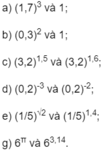Read the following passage and mark the letter A, B, C, or D on your answer sheet to indicate the correct answer to each of the questions.
Many ants forage across the countryside in large numbers and undertake mass migrations; these activities proceed because one ant lays a trail on the ground for the others to follow. As a worker ant returns home after finding a source of food, it marks the route by intermittently touching its stinger on the ground and depositing a tiny amount of trail pheromone - a mixture of chemicals that delivers diverse messages as the context changes. These trails incorporate no directional information and may be followed by other ants in either direction.
Unlike some other messages, such as the one arising from a dead ant, a food trail has to be kept secret from members of other species. It is not surprising then that ant species use a wide variety of compounds as trail pheromones. Ants can be extremely sensitive to these signals. Investigators working with the trail pheromone of the leafcutter ant Attatexana calculated that one milligram of this substance would suffice to lead a column of ants three times around Earth.
The vapor of the evaporating pheromone over the trail guides an ant along the way, and the ant detects this signal with receptors in its antennae. A trail pheromone will evaporate to furnish the highest concentration of vapor right over the trail, in what is called a vapor space. In following the trail, the ant moves to the right and left, oscillating from side to side across the line of the trail itself, bringing first one and then the other antenna into the vapor space. As the ant moves to the right, its left antenna arrives in the vapor space. The signal it receives causes it to swing to the left, and the ant then pursues this new course until its right antenna reaches the vapor space. It then swings back to the right, and so weaves back and forth down the trail.
According to the passage, why do ants use different compounds as trail pheromones?
A. To protect their trail from other species.
B. To reduce their sensitivity to some chemicals.
C. To attract different types of ants.
D. To indicate how far away the food is.



